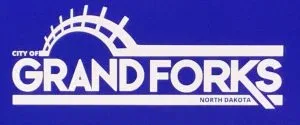
Members and staff of the North Dakota Ethics Commission meet during an Oct. 23, 2024, meeting at the North Dakota Capitol. Pictured clockwise from left are member Murray Sagsveen, Chair Dave Anderson, attorney Logan Carpenter and operations administrator Alisha Maier. (Mary Steurer/North Dakota Monitor)
(Mary Steurer/North Dakota Monitor) -The North Dakota Ethics Commission is considering proposing a new law during the 2025 legislative session to protect whistleblowers.
North Dakota already has whistleblower laws, but none explicitly cover the Ethics Commission.
A bill draft presented during the commission’s meeting Wednesday outlaws retaliation against anyone who in good faith provides “relevant information” to the commission about a possible ethics violation, or who assists in an investigation of a possible ethics violation by providing the commission with “testimony, records, documents, or other information.”
The draft language also includes a provision stating that people who provide false information to the commission would not be shielded from libel, slander “or other civil or criminal actions.”
The draft is based on a New Mexico law, Executive Director Rebecca Binstock said during the meeting.
Murray Sagsveen, the commission’s newest member, suggested Wednesday that the group also look to a statute that protects people who report potential abuse of children and vulnerable adults to the North Dakota Department of Health and Human Services as a possible model.
The commission is considering four other legislative proposals for next year’s session:
- An amendment clarifying that individuals, agencies and organizations under the commission’s jurisdiction can only request advisory opinions on behalf of themselves;
- Changes to its system for investigating potential ethics violations, including an amendment granting the Ethics Commission subpoena power or authorizing the commission to apply for a subpoena from a district court judge;
- An amendment specifying that the two-year prohibition on lobbying after a public official leaves their office only applies to those who were elected, not those who were appointed; and
- Legislation creating a process for enforcing financial disclosure requirements for elected officials.









